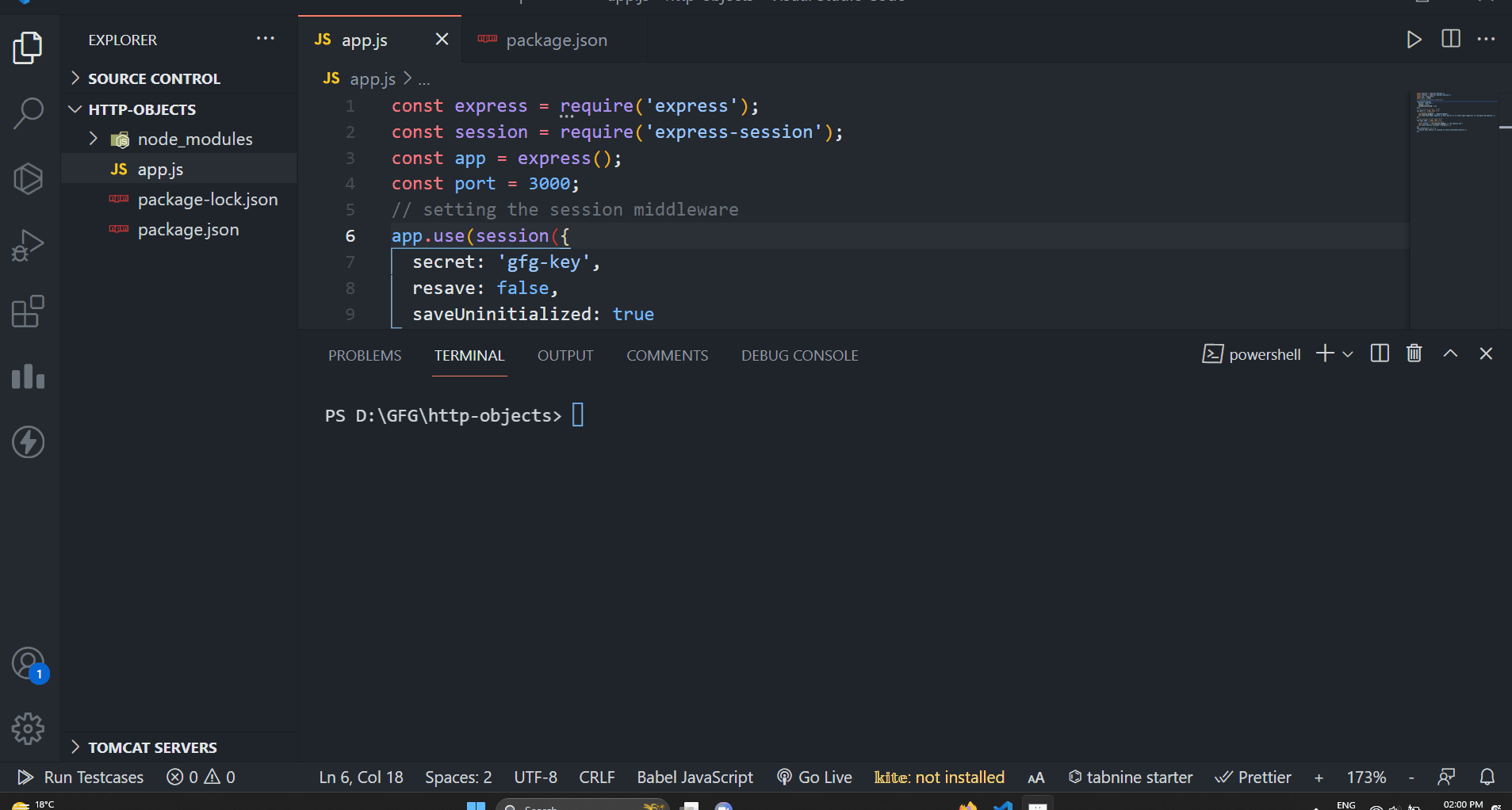What is express-session middleware in Express?
Last Updated :
25 Dec, 2023
In the Express web application, the express-session middleware is mainly used for managing the sessions for the user-specific data. In this article, we will see the use of express-session middleware for session management in Express with practical implementation.
Prerequisites
What is express-session Middleware?
The express-session middleware allows the creation and storage of the session data used for authentication or user preferences. Using this middleware, we can properly maintain the stateful interaction between the Express.js server and the client. Using the sessions the security of the application is maintained and interaction with the user is increased.
Steps to use express-session middleware in Express.js
Step 1: In the first step, we will create the new folder by using the below command in the VS Code terminal.
mkdir folder-name
cd folder-name
Step 2: After creating the folder, initialize the NPM using the below command. Using this the package.json file will be created.
npm init-y
Step 3: Now, we will install the express dependency for our project using the below command.
npm i express
Step 4: As we need to use the express-session middleware, we need to install it using npm. So for this article, we will be using third-party middleware as a express-session. So install it using the below command.
npm i express-session
Project Structure:

The updated dependencies in package.json file will look like.
"dependencies": {
"express": "^4.18.2",
"express-session": "^1.17.3"
}
Example: Write the following code in App.js file
Javascript
const express = require('express');
const session = require('express-session');
const app = express();
const port = 3000;
app.use(session({
secret: 'gfg-key',
resave: false,
saveUninitialized: true
}));
app.get('/', (req, res) => {
req.session.gfgUser = 'geeksforgeeks';
res.send(`Hey Geek! Session is set! Now Go to
<a href="/get">/get</a> to retrieve the session.`);
});
app.get('/get', (req, res) => {
const gfgUser = req.session.gfgUser || 'No session set';
res.send(`Session variable: ${gfgUser}`);
});
app.listen(port, () => {
console.log(`Server is running on http:
});
|
To run the application, we need to start the server by using the below command.
node app.js
Output:

Share your thoughts in the comments
Please Login to comment...